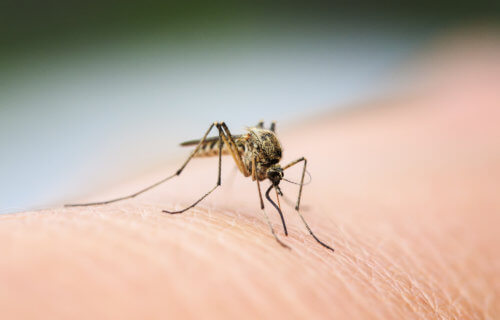OXFORD, United Kingdom — Each year, the World Health Organization (WHO) estimates over 400,000 people die of malaria globally. Most of these deaths are among children living in Africa, where the mosquito-borne disease runs rampant. Now, researchers from Oxford University and their partners are providing new hope of finally preventing the disease. The results of a Phase IIb trial reveals a new malaria vaccine is the first to ever reach WHO’s goal of 75 percent effectiveness in patients.
The trial, involving 450 children between five and 17 months-old, finds R21/Matrix-M has an efficacy of 77 percent. The vaccine candidate also did not cause any adverse side-effects during the 12-month follow-up period.
“These new results support our high expectations for the potential of this vaccine, which we believe is the first to reach the WHO’s goal of a vaccine for malaria with at least 75% efficacy,” says study co-author Adrian Hill, Director of Oxford’s Jenner Institute and Lakshmi Mittal and Family Professor of Vaccinology in a university release.
“With the commitment by our commercial partner, the Serum Institute of India, to manufacture at least 200 million doses annually in the coming years, the vaccine has the potential to have major public health impact if licensure is achieved.”
Malaria affects millions worldwide each year
WHO reports there were 229 million cases of malaria in just 2019 alone. Symptoms of malaria include chills, fever, and sweating, which usually set in a few weeks after the mosquito bite. The organization also notes that, until now, progress on reducing malaria death rates has stalled in recent years.
Over the last few decades, scientists have sent more than 100 malaria vaccines into clinical trials. Unfortunately, none of them have met WHO’s success rate goal of 75 percent.
“Despite global efforts against malaria, too many lives are still lost to this disease, especially babies and young children. Vaccines could change this,” adds Lynsey Bilsland from Wellcome, a group helping to fund the research.
Patients will need a high dose to protect against the illness
Researchers split the trial participants into three groups. The first two received either a low or high dose of Matrix-M. The third received a rabies vaccine to serve as a control group. Study authors administered these vaccines between May and August 2019, prior to peak malaria season.
The results show children in the high-dose group displayed the record-setting 77 percent success rate. Meanwhile, a low dose of R21/Matrix-M only produces a 71 percent vaccine efficacy over 12 months. Thanks to these results, the trial was extended to include a booster vaccination given before the following year’s malaria season.
In addition, researchers are now recruiting participants for a Phase III trial of the new vaccine. This study will involve 4,800 children between five and 36 months-old from four African countries.
“These are very exciting results showing unprecedented efficacy levels from a vaccine that has been well tolerated in our trial program. We look forward to the upcoming phase III trial to demonstrate large-scale safety and efficacy data for a vaccine that is greatly needed in this region,” the trial’s principal investigator Halidou Tinto says.
“A world without malaria is a world safer both for the children who would otherwise be killed by this disease, and for us here at home. Countries freed from the malaria burden will be much better equipped to fight off new disease threats when they inevitably emerge in the future,” concludes Gareth Jenkins, Director of Advocacy for Malaria No More UK.
The trial’s findings appear in Preprints with The Lancet.
